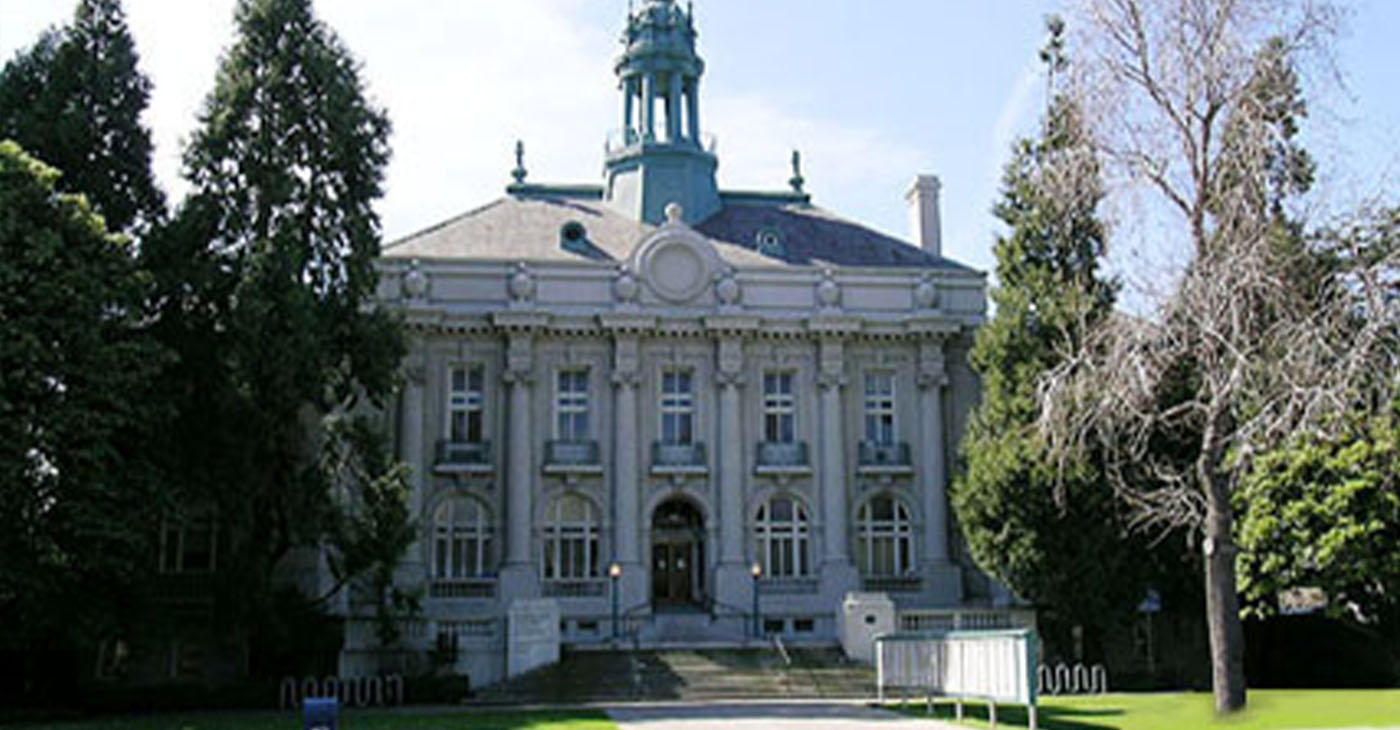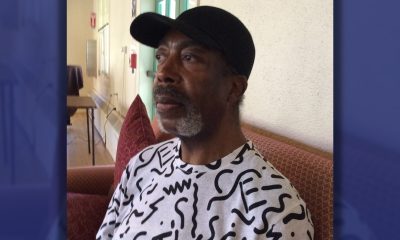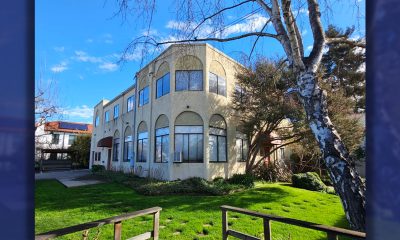Bay Area
Berkeley Considers New Law to Help Tenants Buy Where They Rent
Renée, a Berkeley resident, was dismayed last summer when she saw the final sale price of the four-plex where she and members of her family have lived for 20 years. It wasn’t because the amount was high – it is Berkeley, after all. She was shocked because she’d bid on the property and offered $44,000 more than the new owner paid for it. It just didn’t make sense. Then she found out why her landlord wouldn’t sell it to her. “I didn’t want to sell to you because of [your nephew], I don’t trust him,” the landlord said.

By Chris Schildt
Friends of Adeline
Renée, a Berkeley resident, was dismayed last summer when she saw the final sale price of the four-plex where she and members of her family have lived for 20 years. It wasn’t because the amount was high – it is Berkeley, after all.
She was shocked because she’d bid on the property and offered $44,000 more than the new owner paid for it. It just didn’t make sense. Then she found out why her landlord wouldn’t sell it to her.
“I didn’t want to sell to you because of [your nephew], I don’t trust him,” the landlord said.
An African American small business owner for many years, Renée was hardly unfamiliar with racist dog whistles and the stereotyping of her family members — but this one hit hard.
When the new owner took over, she started making troubling changes that threatened Renée’s ability to operate her licensed in-home daycare. With the help of the Eviction Defense Center and the Berkeley Rent Stabilization Board, she and her fellow tenants have been able to halt efforts to increase the rent and other unlawful acts. But if her previous landlord had sold her the building, she never would have had to deal with this harassment.
“I have felt discriminated against and harassed by these intimidating practices on the basis of my age, gender, race, and economic status,” said Renée. “I feel this type of intimidation is an effort to frustrate me into leaving the place my family and I have lived in for decades.”
Displacement in Berkeley’s African American community is rampant, caused by the steep decline of renters who make up two-thirds of Black households in the city. Like Renée, many have lived in their homes for decades. But even with the city’s robust rent control laws and anti-eviction protections, many find it hard to stay because outside investors buy homes and push tenants out.
This is especially true in historically African American South Berkeley, where Renée lives and where one-bedroom apartment rents have skyrocketed to $2,000 a month or more.
The Berkeley City Council is considering legislation that would help prevent the kind of displacement pressures Renée and other tenants face.
The Tenant Opportunity to Purchase Act (TOPA) helps tenants to become first-time homeowners by giving them an opportunity to buy their homes when their landlord decides to sell. If the landlord decides not to take the tenant’s offer, TOPA gives tenants a chance to match any other offer the landlord receives. For Renée, this would have given her the chance to own her home – and for $44,000 less than she had originally offered.
Another South Berkeley resident, Jonathan (not his real name), an immigrant from Africa, has lived in his apartment for over 30 years. When the property went up for sale last year, he wasn’t concerned – he’s lived there through three different owners and has gotten along with all of them in the past. This time, however, the new owners made it clear that they wanted him gone.
He looked for other housing options in South Berkeley near his job but found nothing at the price he currently pays for his rent-controlled apartment. The Eviction Defense Center was able to help him negotiate to stay in his own apartment, but he no longer feels welcome at home and worries that his landlords might try to force him out again.
TOPA allows tenants to work with land trusts and nonprofits to help fund the purchases and designates the home as affordable housing if public subsidies are used to buy it. In San Francisco, a similar law has helped preserve over 200 units as affordable housing since it passed in 2019.
TOPA was first introduced as an ordinance in 2020 in Berkeley and was reintroduced this past fall when investor purchases and a surge in evictions renewed interest in this policy.
TOPA is supported by the Berkeley NAACP branch, Healthy Black Families, the Berkeley Black Ecumenical Ministers Alliance, the Friends of Adeline, and others. Advocates for fairness and affordable housing are urging community members to contact Berkeley City Council members and ask them to support TOPA.
For more information on TOPA and guidance on how to take action, please visit www.yes2topa.org. To get involved, please contact the Friends of Adeline at friendsofadeline@gmail.com.
Activism
S.F. Black Leaders Rally to Protest, Discuss ‘Epidemic’ of Racial Slurs Against Black Students in SF Public School System
Parents at the meeting spoke of their children as no longer feeling safe in school because of bullying and discrimination. Parents also said that reported incidents such as racial slurs and intimidation are not dealt with to their satisfaction and feel ignored.

By Carla Thomas
San Francisco’s Third Baptist Church hosted a rally and meeting Sunday to discuss hatred toward African American students of the San Francisco Unified School District (SFUSD).
Rev. Amos C. Brown, president of the San Francisco NAACP and pastor of Third Baptist Church, along with leadership from local civil rights groups, the city’s faith-based community and Black community leadership convened at the church.
“There has been an epidemic of racial slurs and mistreatment of Black children in our public schools in the city,” said Brown. “This will not be tolerated.”
According to civil rights advocate Mattie Scott, students from elementary to high school have reported an extraordinary amount of racial slurs directed at them.
“There is a surge of overt racism in the schools, and our children should not be subjected to this,” said Scott. “Students are in school to learn, develop, and grow, not be hated on,” said Scott. “The parents of the children feel they have not received the support necessary to protect their children.”
Attendees were briefed last Friday in a meeting with SFUSD Superintendent Dr. Matt Wayne.
SFUSD states that their policies protect children and they are not at liberty to publicly discuss the issues to protect the children’s privacy.
Parents at the meeting spoke of their children as no longer feeling safe in school because of bullying and discrimination. Parents also said that reported incidents such as racial slurs and intimidation are not dealt with to their satisfaction and feel ignored.
Some parents said they have removed their students from school while other parents and community leaders called on the removal of the SFUSD superintendent, the firing of certain school principals and the need for more supportive school board members.
Community advocates discussed boycotting the schools and creating Freedom Schools led by Black leaders and educators, reassuring parents that their child’s wellbeing and education are the highest priority and youth are not to be disrupted by racism or policies that don’t support them.
Virginia Marshall, chair of the San Francisco NAACP’s education committee, offered encouragement to the parents and students in attendance while also announcing an upcoming May 14 school board meeting to demand accountability over their mistreatment.
“I’m urging anyone that cares about our students to pack the May 14 school board meeting,” said Marshall.
This resource was supported in whole or in part by funding provided by the State of California, administered by the California State Library via California Black Media as part of the Stop the Hate Program. The program is supported by partnership with California Department of Social Services and the California Commission on Asian and Pacific Islander American Affairs as part of the Stop the Hate program. To report a hate incident or hate crime and get support, go to CA vs Hate.
Bay Area
Mayor London Breed: State Awards San Francisco Over $37M for Affordable Housing
On April 30, Mayor London N. Breed announced San Francisco has been awarded more than $37.9 million in funding from the California Department of Housing and Community Development (HCD) as part of the State’s Multifamily Housing Program (MHP). The HCD loan will provide the final funding necessary for development of Casa Adelante – 1515 South Van Ness, a 168-unit affordable housing project located in San Francisco’s Mission District.

By Oakland Post Staff
On April 30, Mayor London N. Breed announced San Francisco has been awarded more than $37.9 million in funding from the California Department of Housing and Community Development (HCD) as part of the State’s Multifamily Housing Program (MHP).
The HCD loan will provide the final funding necessary for development of Casa Adelante – 1515 South Van Ness, a 168-unit affordable housing project located in San Francisco’s Mission District.
The new development at 1515 South Van Ness Ave. will provide 168 affordable homes to low-income families, formerly homeless families, and persons living with HIV earning between 25-80% of the San Francisco Area Median Income (AMI).
In addition, the project is anticipated to provide family-friendly amenities and ground floor community-serving commercial spaces that preserve the prevailing neighborhood character of the Calle 24 Latino Cultural District.
“This funding unlocks our ability to move on building affordable housing units for families in San Francisco at a crucial time. We understand the level of need for more housing that is accessible, and like the state, the city continues to face a challenging budget cycle,” said Breed. “1515 South Van Ness is a good example of what can be achieved in San Francisco when you have strong community partnerships and an unwavering commitment to deliver on critical needs for our residents.”
“From the beginning of my term as Supervisor, I have fought to bring affordable housing to 1515 South Van Ness” said Supervisor Hillary Ronen. “In the interim, the site has been utilized for homeless services and shelter, and I am thrilled that HCD has recognized the value of this development, and we are finally ready to break ground and bring 168 affordable homes to low income and formerly homeless families in the Mission.”
Owned and occupied by McMillan Electric Company until 2015, the City and County of San Francisco purchased 1515 South Van Ness Avenue in June 2019 with the intent of developing new affordable housing.
In November 2020, the San Francisco Mayor’s Office of Housing and Community Development (MOHCD) released a Multi-site Request for Qualifications (RFQ) seeking qualified developers to build affordable housing on the site, and subsequently selected Chinatown Community Development Corporation (CCDC) and Mission Economic Development Agency (MEDA) in May 2021 to develop the site.
The project is expected to begin construction in winter 2025.
“A strong, long-term push by Mission advocates to make this site 100% affordable is now paying off, with 168 family units that include services and childcare. People of color communities know what they need, and we are excited to be in partnership with a team, consisting of MEDA, CCDC, and MOHCD, that listens,” said Malcolm Yeung, Executive Director at CCDC.
“We are excited to be in partnership with CCDC, yet again, and for the opportunity to develop intergenerational affordable housing in the City’s Mission District,” said Luis Granados, executive director at MEDA.
Increasing housing affordable to lower-income and vulnerable residents is a key priority in the City’s Housing Element which calls for additional funding for affordable housing production and preservation, as well as Mayor Breed’s Housing for All Executive Directive that sets out the steps the City will take to meet the bold goal of allowing for 82,000 new homes to be built over the next eight years.
Tuesday’s funding announcement emphasizes the importance of regional and state collaboration in order to reach our housing and climate goals.
“We are thrilled—not just to bring a project of this size to a community with great need — but to do so with community-based developers and their partners who understand the neighborhood and sensitivities around cultural preservation,” said HCD Director Gustavo Velasquez.
Bay Area
East Bay Regional Park District Issues Rattlesnake Advisory
The East Bay Regional Park District released an advisory today on rattlesnakes, which emerge from winter hibernation in early spring and become more active. Warm weather can bring more potential for rattlesnake encounters with humans and dogs, particularly along trails and roads.

The Richmond Standard
The East Bay Regional Park District released an advisory today on rattlesnakes, which emerge from winter hibernation in early spring and become more active.
Warm weather can bring more potential for rattlesnake encounters with humans and dogs, particularly along trails and roads.
Visitors are encouraged to avoid hiking alone in case of an emergency, to scan the ground ahead as they walk, jog or ride, stay on trails avoiding tall grass, and to look carefully around and under logs and rocks before sitting down. Keep your dog on your leash to be extra safe, park officials said.
If you encounter a rattlesnake, leave it alone – it is unlawful to capture or harm one. Move carefully and slowly away or around it and give it plenty of space, park officials said.
Those who are bitten by a rattlesnake are instructed to stay calm by lying down with the affected limb lower than the heart, then having someone call 911.
Getting medical attention is critical.
Those bitten should not use tourniquets, “sucking,” or snake bite kits. If you are by yourself, walk calmly to the nearest source of help to dial 911, do not run.
If bitten by any other type of snake, wash the wound with soap and water or an antiseptic and seek medical attention.
Not sure what bit you? Check the bite for two puncture marks (in rare cases one) associated with intense, burning pain, which is typical of a rattlesnake bite. Other snakebites can leave marks without associated burning pain.
The Northern Pacific rattlesnake is the species found in East Bay Regional Parks. Snakes are important to the natural environment, helping to control rodents and other reptile populations. But enjoy them from afar.
For more information, download the Park District’s Common Snakes brochure or watch our Gopher Snake or Rattlesnake video to learn how to tell the difference between rattlesnakes and gopher snakes. Additional information is available at ebparks.org/safety/wildlife-encounters.
-

 Community3 weeks ago
Community3 weeks agoFinancial Assistance Bill for Descendants of Enslaved Persons to Help Them Purchase, Own, or Maintain a Home
-

 City Government4 days ago
City Government4 days agoCourt Throws Out Law That Allowed Californians to Build Duplexes, Triplexes and RDUs on Their Properties
-

 Business3 weeks ago
Business3 weeks agoV.P. Kamala Harris: Americans With Criminal Records Will Soon Be Eligible for SBA Loans
-

 Activism4 weeks ago
Activism4 weeks agoOakland Post: Week of April 10 – 16, 2024
-

 Activism2 weeks ago
Activism2 weeks agoOakland Post: Week of April 24 – 30, 2024
-

 Community3 weeks ago
Community3 weeks agoAG Bonta Says Oakland School Leaders Should Comply with State Laws to Avoid ‘Disparate Harm’ When Closing or Merging Schools
-

 Community3 weeks ago
Community3 weeks agoRichmond Nonprofit Helps Ex-Felons Get Back on Their Feet
-

 Community3 weeks ago
Community3 weeks agoOakland WNBA Player to be Inducted Into Hall of Fame



















































